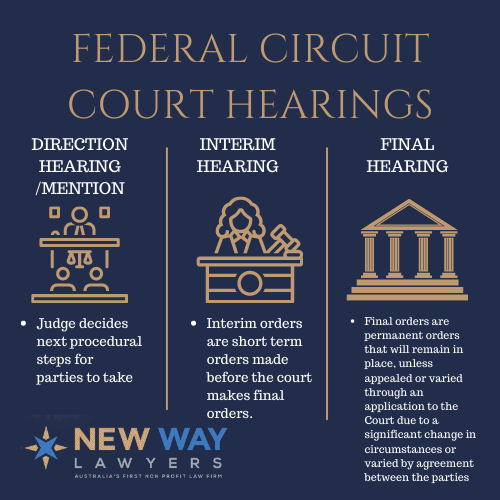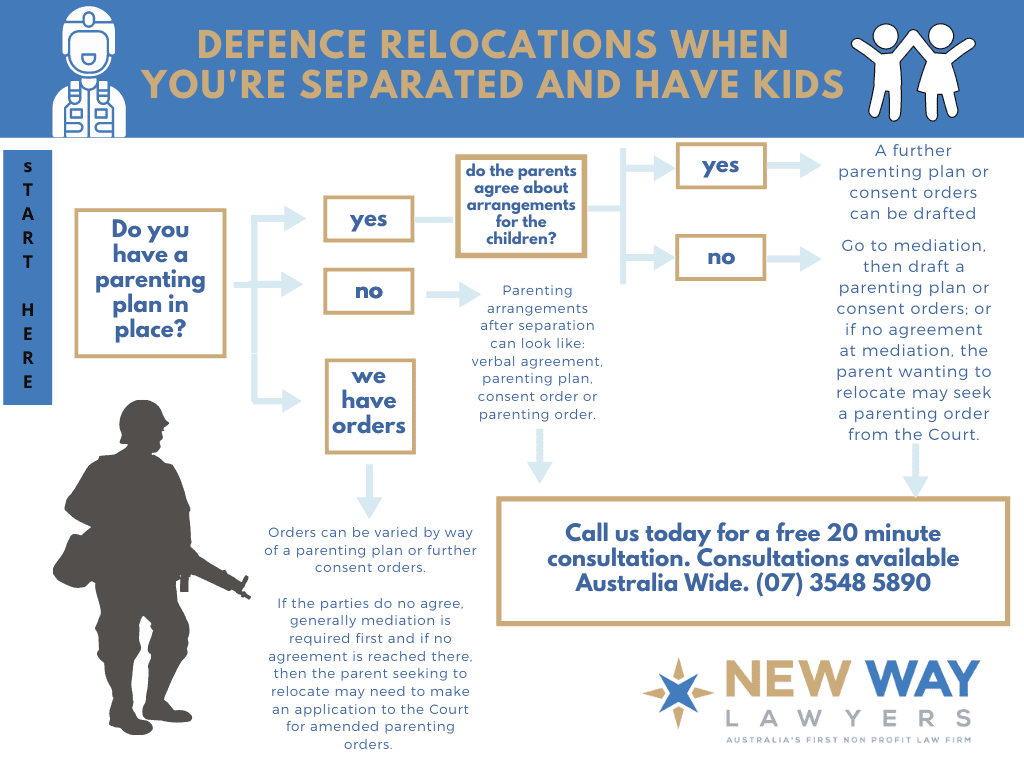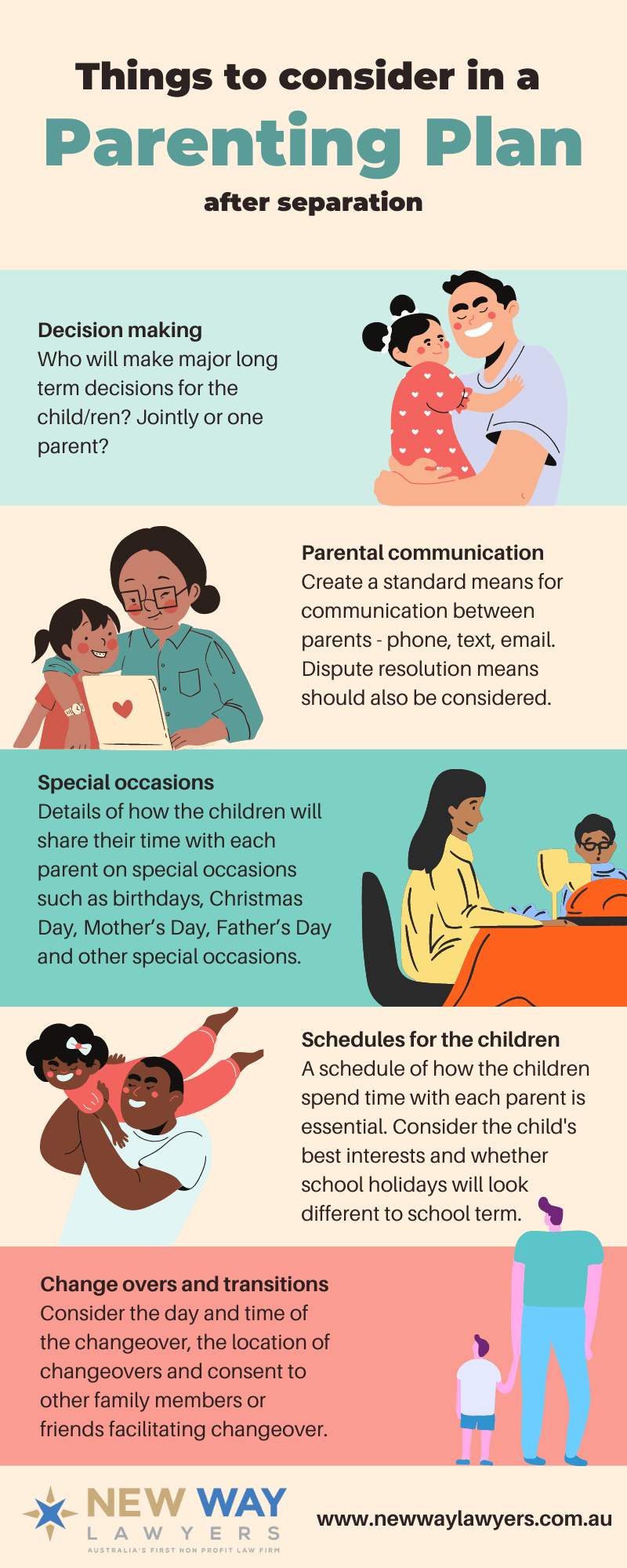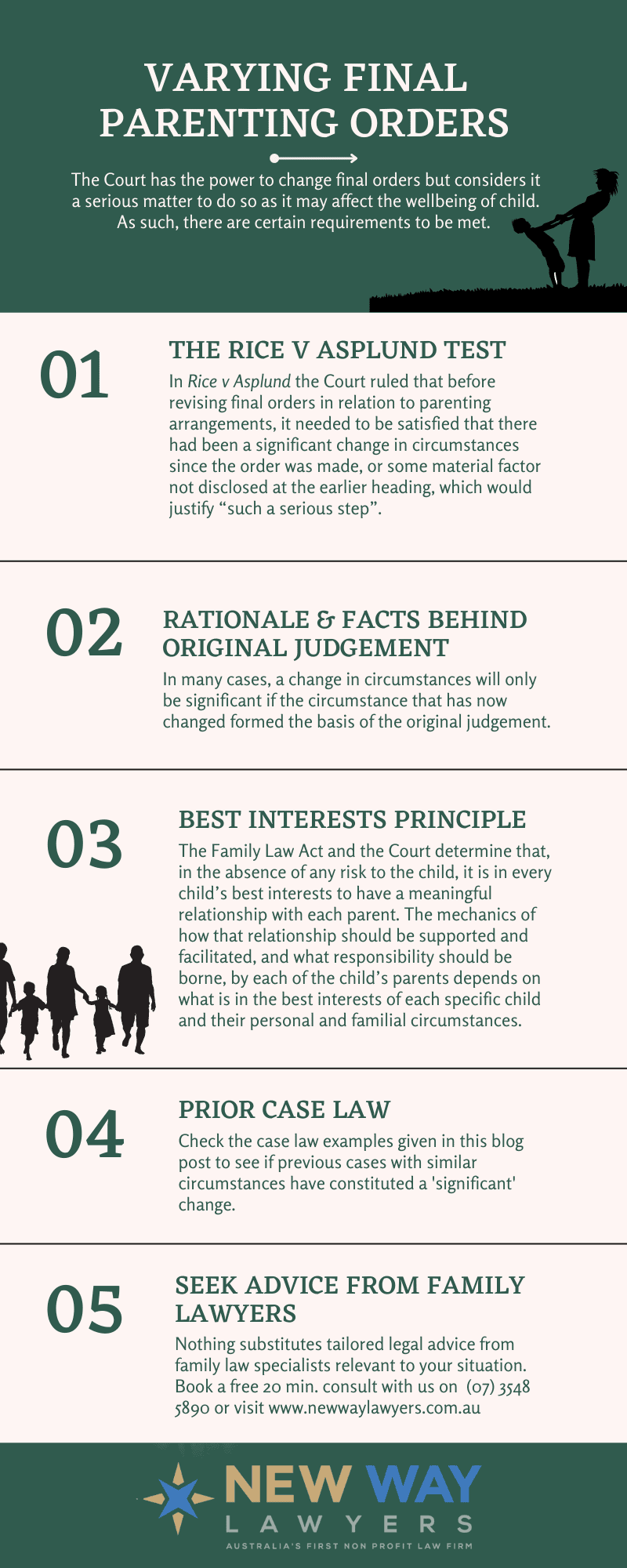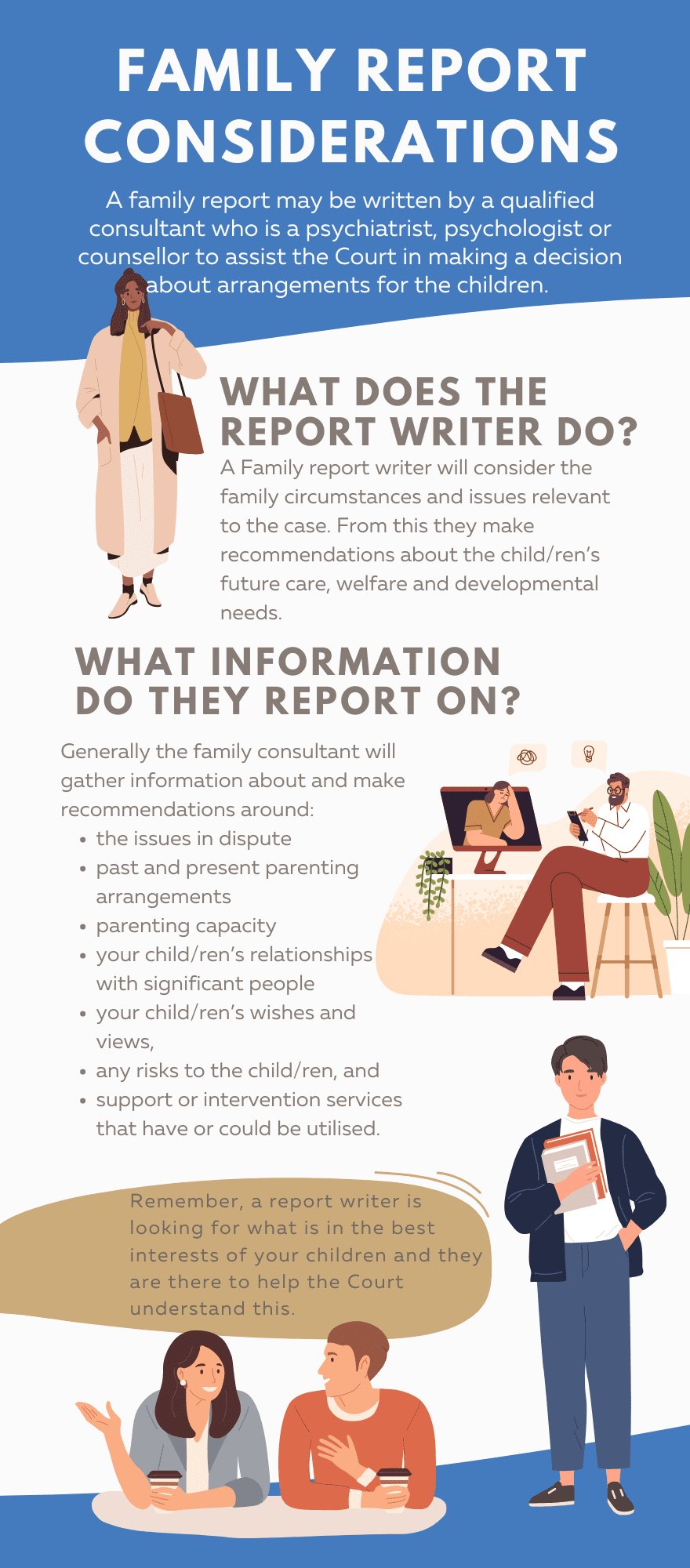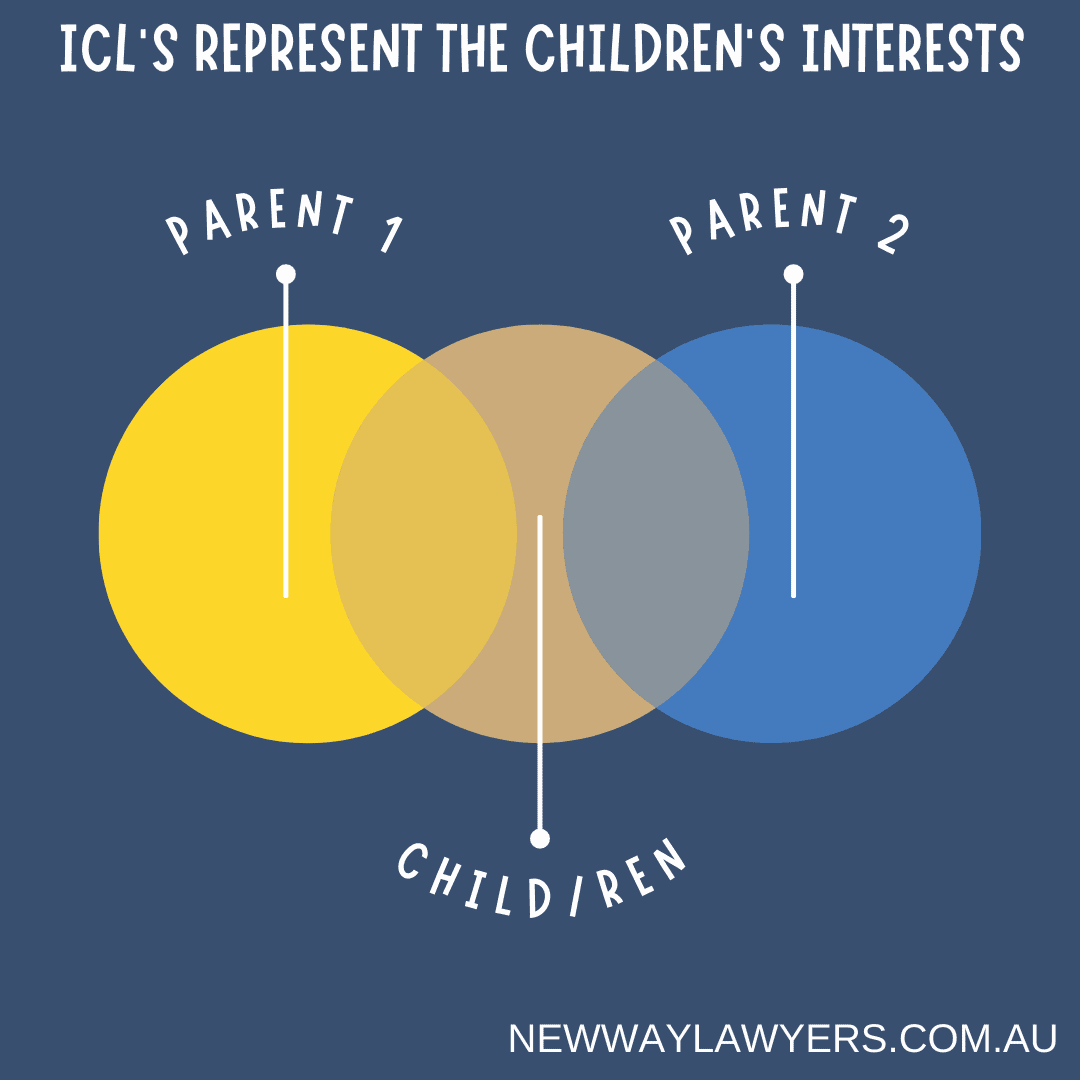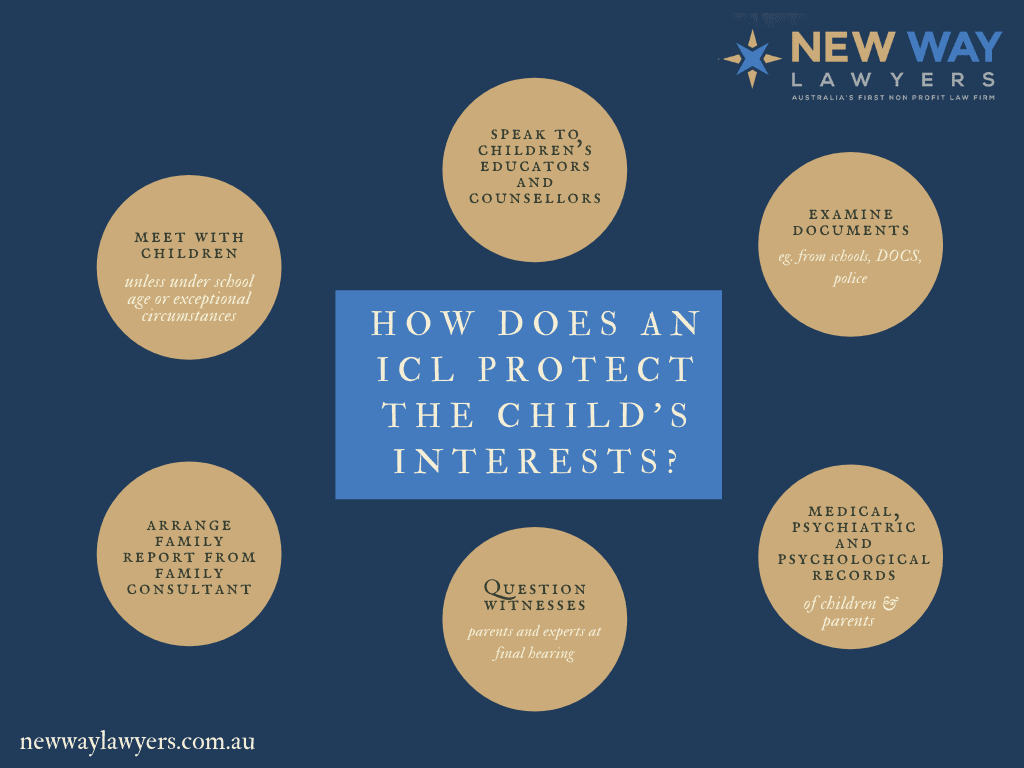-
Family Law Solicitors on the Gold Coast Help Blended Families Thrive
December 21st, 2023 | by GO Creative SupportThere is a high proportion of blended families living on the Gold Coast. In 2021 10.9% of families living on the Gold Coast were step families and 4.3% were blended families. These figures were slightly higher than the figures for the rest of South East Queensland. Step families and blended families have their own beauty, but they also have their own special challenges and legal considerations. When complexities arise, professional support from an experienced family law solicitor may be required. Our family lawyers are based on the Gold Coast and are able to provide clear advice, guidance and ongoing support as your family dynamics change over time.
Parenting Arrangements in Blended Families
Blended families, comprising step-parents, step-siblings, and a mix of biological and non-biological children, may face legal issues regarding parental responsibility i.e custody, living arrangements and visitation arrangements.
It’s essential to have a clear and legally sound arrangement in place to prevent conflicts and confusion. As expert family law solicitors on the Gold Coast, our team can help mediate and negotiate parenting arrangements that ensure the children’s best interests are prioritised and that they maintain meaningful relationships with all parental figures.
A well drafted parenting plan or parenting consent order, prepared by a family lawyer who understands the dynamics and intricacies of blended families, can not only resolve legal issues in dispute but also bring practical insight and tips for making cross household schedules smoother and less stressful.
Child Support Arrangements
In blended families child support can be very complex and nuanced. Obtaining advice from a qualified family lawyer about the differences between child support assessments, limited child support agreements and binding child support agreements may bring a more suitable and tailored solution to child support arrangements.
Resolving Property and Financial Matters
When parties repartner quickly after separation without having resolved property and financial matters it can become complex and messy. There may be competing and overlapping interests and entitlements. Engaging a family lawyer to assist with property / financial settlement is crucial and formalising arrangements will bring peace of mind and security for the future.
How Can our Family Law Solicitors Help You?
Family law solicitors play a crucial role in helping blended families address their legal concerns. Whether you’re a step-parent seeking to establish your rights or a biological parent aiming to protect your child’s interests, or whether you’re trying to resolve property / financial matters, legal guidance is invaluable. Gold Coast family law firms, like New Way Lawyers, are well-versed in Australian family law, ensuring your family’s unique needs are met as soon as possible. Reach out for a free 20 minute phone call with one of our family lawyers.
-
How to support children during & after separation
June 23rd, 2022 | by newwaylawyersBy Karyna Jansons, Owner of Ceres Counselling
Separation and divorce usually mean monumental changes for family life. If you have children and are separating, it’s normal to worry about how your children are going to adjust to this new way of living and it’s also normal for children to have a difficult time adjusting. But don’t worry, there are many tools available to you to help ensure your children have the best support while undergoing these family changes.
Here are some helpful tips and tricks to help you support your children (and yourself!) during these challenging times.
- Openly and honestly communicate with your children about what’s going on in a language appropriate for their age-level. While this doesn’t mean you tell them all the nitty gritty details, engaging them in honest conversation about what’s happening and giving them the opportunity to discuss how they feel about the situation can help your child feel included, loved and cared for. Children will often have ever-evolving questions about the changing dynamics, and making time and space for private conversation with them can help alleviate some of their anxiety. When talking about these matters, make sure you’re aware of your body language and try and stay as calm as possible.
Helpful tip: Do not bad-mouth your ex-partner in front of your children, no matter how you might feel about them or what has happened. This can create anxiety and sadness in children, and even feelings of guilt, shame or confusion about their natural love for a parent. Children need to be given agency to decide how they feel about a situation or about a parent’s behaviour.
- Be sensitive to your children’s emotions. Separation is tough on everyone, but it can be especially tough on kids. For young children, separation can be a crash-course in emotions they haven’t experienced yet, such as anger, guilt, shame, fear or loneliness. Put a teenager in the mix combined with their changing bodies, hormones and individual identity development and you’ve got a recipe for tumultuous times. Allow your children to feel and express their emotions and validate what they are feeling. If they choose to reach out to you, make sure you give them your full attention and let them know you understand how hard it is.
- Stick to a good routine and blend new and old rituals. Separation can bring a change of routines and challenges around foundational aspects of your child’s life, such as moving to new locations, co-parenting or navigating two separate schedules. This can be disorienting and anxiety-inducing for children as they crave security. If you are able to have positive parenting conversations with your ex-partner, agree on schedules and routines that help the children, such as the same bedtimes and school drop-off/pick-up routines. It may also be helpful to continue engaging in old rituals, such as Sunday roasts or Saturday morning walks to provide some continuity. Allow the kids to put in their ideas for new rituals as well. Spending quality time with the children before bed every night, such as reading a story or waking them up in the same manner every morning can also help them feel safe and secure.
- Strengthen your children’s support networks. Separation can feel like an isolating time for kids, so it’s important they have strong social support outside of you and your ex-partner. Keep them regularly in contact with friends, extended and supportive family or community networks (such as schools, sports or youth groups). This allows them the opportunity to voice their feelings to others if they need to. While you may want your children to talk to you about everything, there will always be some things they feel they can only voice to friends or other trusted confidants. If you really feel like your children are struggling badly, counselling can help but your child needs to be on board with you seeking out additional support for them.
- Look after yourself! Make sure you take enough time-out for you as well. If you’re struggling, it’s likely to make things more difficult for your children if you’re not coping well. While some ups and downs are normal during this difficult time, you don’t want to burn out. Get enough rest, sleep and down-time. Rely on your own support network, and seek professional assistance if you’re really struggling to cope. Remember that while smooth seas never make a skilled sailor, it’s not helpful to try and chart a course on your own during a major storm. Take time for you, and put yourself first every once in a while.
About Karyna Jansons:
Karyna Jansons is the owner of Ceres Counselling, a warm, non-judgemental and deeply compassionate counselling service for clients who want to be seen for their wholeness and not just a label or diagnosis. Having lived and worked remotely in the NT for nearly 20 years, she is now based in Queensland where she provides online and phone counselling to anyone across Australia. She has previously worked with women and children escaping domestic violence, youth involved in the justice system and adults with severe mental health concerns. She is passionate about making counselling accessible to everyone and is passionate about breaking the stigma that surrounds mental health.
- Openly and honestly communicate with your children about what’s going on in a language appropriate for their age-level. While this doesn’t mean you tell them all the nitty gritty details, engaging them in honest conversation about what’s happening and giving them the opportunity to discuss how they feel about the situation can help your child feel included, loved and cared for. Children will often have ever-evolving questions about the changing dynamics, and making time and space for private conversation with them can help alleviate some of their anxiety. When talking about these matters, make sure you’re aware of your body language and try and stay as calm as possible.
-
Parenting Plans: What you need to know
March 28th, 2022 | by newwaylawyersAre you wondering what issues can be included in a parenting plan or how you and your ex-partner can create one? Maybe you’re wondering what a parenting plan actually is? Well, you have come to the right place as we are going to explain what a parenting plan is, what parenting issues can be included in your plan and how you can draft it.
What is a Parenting Plan?
A parenting plan is a written agreement, recognised under the Family Law Act, that sets out the parenting arrangements and responsibilities for one or more children. Both parents or guardians are to work out the arrangements and agree to the plan before dating and signing it.
How can separated parents or guardians create a parenting plan?
There is no specific or required format for a parenting plan. If you and the other parent or guardian are able to agree on the parenting arrangements and responsibilities for the child/ren, you can simply document your agreement and date and sign it.
Services are available to assist you and the other parent or guardian reach agreement through family dispute resolution (FDR). FDR is a process that brings two parties’ together to discuss issues in conflict. A mediator trained in family dispute resolution, works with both parties to reach agreements and work through conflict. Agreed outcomes can be documented into a parenting plan following FDR.
For information as to which services can provide FDR, visit: https://www.familyrelationships.gov.au/talk-someone/centres
Do I need a family lawyer to make a parenting plan?
There is no requirement for a family lawyer to be involved with the making of a parenting plan – parents and guardians can proceed with the assistance of a family lawyer. At any point during the process of arranging a parenting plan a parent or guardian can however engage a family lawyer for advice or assistance if questions or concerns arise.
What issues can be included in a parenting plan?
A parenting plan can include everything concerning the parenting arrangements and responsibilities for your child or children including;
- Allocation or parental responsibility
- Living arrangements and time arrangements for the children with each parent;
- Communication by way of telephone, face-time and/or online time with each parent when not in their care;
- Schools and/or Day care centre’s both parents or guardians agree their children will attend;
- Agreed parenting rules or strategies to be enforced in each house such as not playing video games after 8pm, not having a mobile phone until a certain age, not having ears pierced or hair dyed until both parents agree and so on.
- Financial support arrangements for the children
What should parents or guardians consider when making a parenting plan?
- Children’s best interests are to be prioritised when making long term decisions about the child/ren or day-to-day care and responsibility of the child/ren;
- Children’s wishes and views;
- The age, stage and development of the child/ren;
- Special needs of the child/ren including any medical, learning, developmental and/or psychological needs;
- Education and educational needs of the child/ren;
- Cultural needs of the child/ren;
- Safety needs of the child/ren;
- Practical planning considerations regarding the transport, living arrangements and expenses for the child/ren;
- Suggestions and recommendations from child development professionals;
- Financial responsibilities of each parent that are outside the scope of child support such as extra-curricular activities, additional uniforms and medical treatments involving out of pocket expenses such as dental, orthodontic and optical.
- Strategies for minimising and resolving conflict that may occur between the separated parents or guardians to the plan.
Is a Parenting Plan legally binding?
A parenting plan is not legally binding.
Can I make our Parenting Plan legally binding?
If you would like to make a parenting plan legally binding, you can apply for consent orders which means both parties agree and consent to parenting orders being made.
If you and the other parent or guardian do not agree and want to make an application for parenting orders to the Family Court and Federal Magistrates Court of Australia (FCFCOA), you need to attend Family Dispute Resolution (FDR) prior to making an application with the Court.
For more information on parenting orders and how to apply, visit: https://www.fcfcoa.gov.au/hdi/apply-parenting-orders
If you have further questions about a parenting plan one of our family lawyers would be more than happy to have a free 20 minute phone consultation with you. Simply fill in an online enquiry form and one of our family lawyers will arrange to give you a call.
-
Co-parenting in COVID19
January 19th, 2022 | by newwaylawyersWhile many States in Australia adjust to rapidly increasing rates of Omicron, many parents are feeling concerned about how to ensure their children’s safety. With minimal restrictions in place and vaccinations now available for children, it can be difficult for parents to know what is best for their children. Separated parents are navigating uncharted territory as they try to agree on social distancing protocols, childcare attendance and having their children vaccinated. When separated parents disagree on issues such as these, it can result in tension and conflict and negatively impact the co-parenting relationship. Disagreeing parents have a number of options available to them to resolve their conflict.
Seek Family Dispute Resolution
The first step is to seek family dispute resolution (FDR) with an accredited family dispute resolution practitioner. With many FDR services now providing online services, accessing mediation is easier and safer than ever.
If, however, separated parents simply cannot reach agreement, there are a few legal concepts to consider. According to Family Law, separated parents each have shared ‘parental responsibility’ unless the Court determines otherwise. This means that parents are to consult each other before making major decisions that impact upon their children such as medical treatment and education. Similarly, each parent has responsibility to make day-to-day decisions when their children are in their care.

For those with existing parenting orders
For parents who have parenting orders in place, the spending time arrangements set out in the orders should be adhered to unless both parents mutually agree to vary the orders. Circumstances have arisen however since COVID19 where sometimes the provisions of parenting orders are frustrated and unable to be followed due to circumstances outside the parents control.
Examples of parenting arrangements frustrated by COVID19
Parents with a positive COVID19 test result, for example, have been unable to meet changeover arrangements. Other situations have seen one parent withhold children from the other parent due to concerns about underlying health conditions in the child that make them more susceptible to the harmful risks of COVID19 particularly if the other parent is unvaccinated or working in a high risk occupation.
If circumstances such as these were contested, the Court would consider whether in the specific circumstances there was a reasonable excuse for not adhering to the parenting order. Ideally, parents discuss their concerns and issues either at FDR or independently and reach mutually agreeable alternative arrangements.
It is important to remember that COVID19 presents new challenges for the family law system and separated parents. There are heightened levels of anxiety and uncertainty among families and it is helpful to be mindful of the impact the current COVID19 situation is having on people’s mental health. Approach disagreements with compassion and empathy and attempt to reach resolutions, writing any agreed changes to current parenting arrangements and seeking family law advice when you need it. Contact us today if you require any advice specific to your situation.
-
Interim hearing versus final hearing in family law
November 3rd, 2021 | by newwaylawyersSo you have progressed your matter past the first court appearance and you are told that you have to attend an Interim Hearing or a Final Hearing… what does this actually mean? Legal jargon can sometimes feel like a different language and the Courts can feel like a different planet.
To help makes sense of it, the team at New Way Lawyers are going to break it down and share key information about Interim and Final Hearings.

Interim Hearing in the Federal Circuit and Family Court of Australia
An Interim Hearing usually occurs when two parties cannot agree on parenting or property arrangements. The Court makes an order before the final decision is made (an interim order). The Interim order is a temporary order and stays in place until a final decision is made by the Court or agreement reached by the parties.
What do you need to do before a family law Interim hearing?
If your matter has been listed for an Interim Hearing, the Court will most likely have told you what documents you need to file. It is important to comply with timelines for filing documents, otherwise your matter may be delayed (adjourned) or the Judge may grant the orders the other party is seeking. Failing to follow directions given by the Judge can also sometimes result in a ‘costs order’ being made, requiring you to pay money to the other party or their solicitor to cover their costs.
An interim hearing is generally heard ‘on the papers’ which means the Judge will make a decision after reading the documents that have been filed. It is rare for witnesses to be called or cross examined during interim hearings.
Final Orders in the Federal Circuit and Family Court of Australia
A Final Hearing is a formal court hearing where all documents are presented to the Court. In addition, witnesses are called and cross examined. The Court considers all of the evidence before making a final decision. There can be a significant length of time, often 1-3 years, between when court proceedings are commenced and a final hearing being set.
How can you prepare for a final hearing in the Federal Circuit and Family Court of Australia?
Preparing for final hearing is a vey involved and time intense process. Prior to the final hearing the Judge will make trial directions, which set all the steps that the parties need to take prior to the final hearing. This will include what additional documents needs to be filed, what further disclosure needs to be exchanged between the parties and arrangements for the payment of court fees. It is at this point that a barrister will often become involved in preparing the matter for final hearing.
It is important to be prepared for your final hearing by having all of your documents with you. A good tip is to remember to call the Judge, ‘Your Honour’ and present yourself appropriately as the final hearing is formal.
Can you appeal a final order?
After final orders have been made people often wonder if the orders are able to be changed.
If final orders were made by a Judge at final hearing the orders may be able to be appealed. The grounds for appealing final orders include that an error of law or an error of fact was made by a Judge who was presiding over the final hearing. An appeal must be on the basis of one of these valid grounds, it is not possible to appeal simply if the outcome is different to what a party was hoping for or not as favourable as expected.
There may be circumstances following the making of final orders where a significant change in circumstance has arisen, which was not contemplated by the final orders. This change in circumstances may give rise to the ability for an application to be made to the Court to change or vary the final orders. It is important to obtain legal advice if you wish to make an application to vary final orders as it is necessary for a threshold test to be satisfied before the Court will consider the actual application to vary. This threshold test is known as the Rice and Asplund test.
At any point after the making of final orders the parties can agree between themselves to vary or change the orders but both parties must agree, changes are not able to be unilaterally made by just one party.

Call us today on (07) 3548 5868 if you would like a free 20 minute consultation with one of our experienced family lawyers.
-
What is a Direction Hearing / Mention?
November 2nd, 2021 | by newwaylawyersWhen you first start navigating the family law system, it can feel like trying to navigate a map in another language. The forms, process, time frames and the terminology can all feel bamboozling!
Let’s make it simple and explain some of the key steps involved in family law processes.
The Federal Circuit Court and Family Court of Australia overseas family law matters. It has two divisions, division 2 is where all applications are made and division 1 hears all referred complex cases and appeals. Proceedings can only be filed in the Court if all pre-action procedures have been adhered to including engaging in dispute resolution.
Main types of court dates in the Federal Circuit Court and Family Court of Australia
There are four main types of court dates in the FCCFCA and they are;
- First Court Event
- Direction Hearings or Mentions
- Interim Hearings
- Final Hearings
First Court Event in the Federal Circuit Court and Family Court of Australia
The first court event is a procedural hearing conducted by a Judicial Registrar 1-2 months after filing. In this hearing the Judicial Registrar hears from the parties about what steps need to be taken to prepare the matter for the next stages of the Court process and makes orders and directions regarding the same (such as attending dispute resolution, collecting valuations, export reports or disclosure, attendance to an event with a Child Court Expert or attendance to a relevant program). The Judicial Registrar can also make interim financial or parenting orders.
Direction Hearings / Mentions in the Federal Circuit Court and Family Court of Australia
Direction Hearings or Mentions are brief Court appearances where the Judge, Senior Judicial Registrar or a Judicial Registrar makes orders for the next steps that need to be taken to progress and resolve the matter. For example, dispute resolution, financial valuations, disclosure or family therapy may be ordered.
Sometimes there is more than one Direction Hearing and as these are focused on determining the next steps for progressing the matter, there generally won’t be an opportunity for the actual issues in dispute to be decided or determined.

How long after filing an application will a matter be heard in the Federal Circuit Court?
Usually, the first court date will be held 4- 8weeks after the applicant (the person making the application) has filed their application with the Court. An application can be filed either in person at the Court registry or online. If you file in-person, registry staff will write the date, time and location of your first Court date on your application. If an application is filed electronically, a range of available dates will be indicated and the Applicant will choose one of the available dates.
If you are the respondent to an application in the Federal Circuit Court, when do you find out hearing dates?
If you are the respondent (the person who has not made the application but is responding to an application), you will be notified of the date, time and location of the first Court Date when you are served with the application.
Book a free 20 minute consultation with one of our experienced family lawyers and we can help you make sense of these complex processes in light of your matter today on (07) 3548 5868.
-
Defence posting relocations, separation and child custody arrangements
October 8th, 2021 | by newwaylawyersPosting relocations are difficult for Australian Defence families at the best of times, but even more so when the move occurs following separation and there are parenting arrangements to consider. Emotions are often intensified and feelings of uncertainty can arise for children and parents alike. Our experienced family lawyers have helped many Defence families with questions about family law and posting relocations. Set out below is some general information that may be helpful to families who find themselves in this situation.
For those newly separated in the Australian Army, Navy or Air Force
there are four approaches parents can take to parenting arrangements after separation. These are a verbal agreement, parenting plan, consent order or parenting order. To determine which might be best for you, take this simple quiz.
Is there separate rules for those in defence?
There are no separate rules for parenting arrangements when it comes to Australian defence relocation or deployment matters. The relevant objects and principles set out in the Family Law Act 1975 (Cth) guide the court, with the child’s best interests as the primary consideration.
What sort of orders can the court make?
The court has the ability to make broad orders including permitting a child to locate ‘wherever’ the parent in question was posted by the ADF, so long as this was in Australia. Two relevant recent cases on this matter are Wendland & Wendland [2017] FamCAFC 244 and Osmond & Brand [2019] FCCA 1696.

For those with a parenting plan in place
If you and your ex spouse or partner already have a parenting plan in place and there is no urgency involved, then the process can involve:
-
If the parties agree to the move
When both parents agree to the child/ren relocating with the defence member, a further parenting plan or consent orders can be drafted. The things that should be considered in a parenting arrangement can be found here.

-
If the other parent doesn’t agree to the move
When there is disagreement between the parents regarding the relocation of the child/ren, then generally mediation is compulsory (there are however some limited exceptions to the requirement for mediation). If an agreement is reached at mediation, then a parenting plan or consent orders can be drafted thereafter. If an agreement is not reached, the parent wanting to relocate may at that point need to seek a parenting order from the Court.
For those with court orders
When there are existing court orders, the parties will need to vary the orders to accommodate the new situation. This can be done by way of a parenting plan or further consent orders if the parties are in full agreement about the new arrangements. .
If the parties have existing orders but they do not agree on the move, then they will generally have to attend mediation first before going to court to seek variation of the orders. If there is no agreement reached at mediation, the parent seeking to relocate may need to make an application to the Court for amended parenting orders. The application would however have to satisfy the Rice v Asplund test. This threshold test is explained here.
Considerations that are relevant to parenting arrangements in Defence relocation / posting matters
It is well established that the best interests of the child include the minimisation of future proceedings and litigation. In light of this, the Court will try to ensure any further orders address the issue of future deployments, even if the details of future postings are unknown at the time the orders are being made.
In light of this, the court may consider whether one parent should have sole parental responsibility rather than an equal shared parental responsibility. The court might also consider whether orders should be made with two alternatives included, one allowing for arrangements that apply when the parents live in close proximity and the other for when the parents are living a long distance apart due to deployment or relocation.
Get expert family law advice early

Defence relocations are complex in nature and the considerations involved in these cases are varied and specific to each family. We highly recommend getting legal advice from expert family lawyers if you or your ex partner/spouse are relocating due to a posting order with the Australian Army, Air Force or Navy.
If you would like to discuss your options or the particulars of your case, phone New Way Lawyers on 1300 043 984 or contact us here for a free 20 minute consultation with one of our expert family lawyers. Australia wide consultations are available.
-
-
Parenting Arrangements After Separation
September 15th, 2021 | by newwaylawyersFollowing separation there are four approaches that parents can take when setting up future parenting arrangements for their children. Determining which approach is best depends on several factors.
How should I structure parenting agreements after separation?
If you are a parent who has recently separated, answer the 3 questions below to find out which approach might be suitable for your family. Read each question and answer A, B, C or D choosing the response that best describes your situation .
The communication between you and your ex is generally:
- Very good – we communicate regularly and easily and agree about most parenting matters;
- Good – we communicate when required and when we have differences, we work these out;
- Poor – we communicate mainly by text or email and struggle to resolve our differences;
- Non-existent – we are unable to communicate at all and disagree about everything.
The level of trust between you and your ex is generally:
- Very High – we keep our word and uphold our agreements;
- High – there have been a few minor issues with agreements not being followed;
- Low – there have been times when core agreements have not been followed;
- Very Low – there is no agreement to uphold.
Describe your preference regarding the structure for parenting arrangements:
- Very Low: flexibility and being able to change arrangements as needed is a high priority;
- Low: routine has a place but the ability to make changes to arrangements is more important;
- High: routine is important and the ability to make changes should be limited;
- Very High: consistency and certainty are very important.
Your results suggest…
Mostly A’s – A verbal agreement may be the suitable arrangement for your family.
Mostly B’s – A parenting plan may be the preferred pathway for your family .
Mostly C’s – A consent order may be the best option for your family.
Mostly D’s – A parenting order made by the court may be what is needed for your family.
What things should I include in my parenting arrangement?
For the things you should include in your parenting arrangement, see the image below and further information can be found here.

The above should in no way be construed as legal advice. If you would like legal advice about parenting arrangements or other family law matters call (07) 3548 5868 for a free 20-minute phone consultation with one of our family lawyers.
-
FAQs: Merger of Family Court of Australia and the Federal Circuit Court of Australia
September 7th, 2021 | by newwaylawyersThe Family Court of Australia and the Federal Circuit Court of Australia have merged. Let’s navigate the family law court merger together with some FAQs:
Q: When did the merger take effect?
A From 1 September 2021
Q: What will the new Court be called?
A The amalgamated new court will be known as Federal Circuit and Family Court of Australia (FCFCA).
Q: What is the reason for this merger?
The main reason for the merger is :-
- to reduce costs and delay in family litigation and to encourage proceedings to be conducted in a more calm and civil manner
- to facilitate the fair resolution of disputes as quickly, inexpensively, and efficiently as possible
Q: How will delays and backlogs be reduced?
A: The FCFCA will place greater emphasis on encouraging parties to settle their matters, where it is safe to do so through dispute resolution. This means there will be less final hearings and Court events, reducing the Court’s workload.
Q: What protection will be afforded to children?

A: The FCFCA will place emphasis on the need to protect the rights of children, promote their welfare and protect them from family violence.
Q: Will there only be one Court after the family law court merger?
A There will be one court, but two divisions of that court. The Family Court of Australia will become the Federal Circuit Court and Family Court of Australia (Division 1). The Federal Circuit Court of Australia will become the Federal Circuit Court and Family Court of Australia (Division 2).
Q: What is the difference between Division 1 and Division 2?
Essentially, applications will be filed in Division 2 and appeals will be heard in Division 1.
Q: Will the current Court forms still apply?

A Yes and no. The FCFCA has streamlined its procedures and new forms are now available on the new FCFCA website. The FCFCA will accept the old forms for a grace period of 90 days from 1 September 2021. After this time, the new forms must be used when applying to the Court.
Q: What is the new FCFCA website address?
A: https://www.fcfcoa.gov.au/
Q: What does this mean for my family law proceedings?
A: You will not be required to do anything if your matter is already in the court system. If your matter was previously in the Family Court of Australia, it will now be listed in Division 1. If your matter was previously in the Federal Circuit Court of Australia, it will now be listed in Division 2.
Q What forms am I required to file if I want to commence a financial or parenting application in Court?
A If you are filing an application in the new Court, you can look at their website to find a list of the forms you will be required to file in support of that application.
The Court’s information about required documents for applications can be found here: https://www.fcfcoa.gov.au/fl/ss-overview
If you require any assistance in your family law matter please call us on 07 3548 5850 or contact us here.
-
Things to consider in a parenting arrangement after separation
August 24th, 2021 | by newwaylawyersThere are several topics that should be included in any post separation parenting arrangement, regardless of whether the parenting arrangement is structured as a verbal arrangement, parenting plan, consent order or court order.

Decision making
A post separation parenting arrangement should outline how major long-term decisions will be made for the children, namely, whether decisions will be made jointly by the parents or whether one parent will make the decisions and then inform the other parent.
Parental communication
Children should not be used as messengers between the parents. Instead parenting arrangements should provide for a standard means of communication between by the parents. Some options include email, text, phone or a communication app. It is also wise for parenting arrangements to include a process for dispute resolution in case an issue arises that cannot be resolved.
Schedules for the children
A schedule setting out how the children spend time with each parent is an essential part of any parenting arrangement. A consistent schedule can be set up to apply through both the school terms and school holidays or there may be different schedules for the school terms and the school holidays. Any schedule that is set up should be age appropriate and promote the children’s best interest.
Special occasions
Any parenting arrangement should include details of how the children will share their time with each parent on special occasions such as birthdays, Christmas Day, Mother’s Day, Father’s Day and other special occasions.

Changeovers and transitions
To avoid disputes and confusion parenting arrangements should cover how the children transition between each household. These arrangements should include the day and time of the changeover, the location of changeovers and consent to other family members or friends facilitating changeover.
Miscellaneous
There are range of other topics that can be included in parenting arrangements such as extracurricular activities, passports and travel,
Finances
Generally, financial support of the children is dealt with separately from parenting arrangements. Parents who have covered details of financial support for the children in parenting arrangements should seek advice from a family lawyer about how to formalise financial support arrangements.
If you need assistance drafting your parenting plan, or advice on parenting arrangements and legalities, call us today on 1300 043 984 or contact us here for a free 20 minute consultation with an experienced family lawyer.
-
When will the Court vary final parenting orders? (Rice v Asplund test)
August 8th, 2021 | by newwaylawyersThe Court will vary final parenting orders only in limited situations, where there has been a significant change in circumstances of the child or the family, or if it would be in the best interests of the child. If the Court decides to re-open a matter, this will likely result in fresh proceedings and new Orders being made upon the hearing of the issues in dispute.
The Rice v Asplund test
The case of Rice v Asplund (1979) set a threshold test for ascertaining whether or not a Final Order can be changed. In Rice v Asplund the Court ruled that before revising final parenting orders, it needed to be satisfied that there had been a significant change in circumstances since the order was made, or some material factor not disclosed at the earlier heading, which would justify “such a serious step”.
The rationale behind the rule
Chief Justice Evatt stated that the Court: “…should not lightly entertain an application … To do so would be to invite endless litigation for change is an ever present factor in human affairs .” This rule was created to protect children from being exposed to the uncertainty of ongoing litigation. This intent was further expressed in Freeman (1986) where Strauss J commented on the certainty of orders and the importance of supporting them to encourage “stability in the lives of children … an essential prerequisite to their well-being”. This ruling was a manifestation of the best interests of the child principle, as outlined in the Family Law Act (1975).

What is a significant change of circumstances?
What amounts to a significant change in circumstances depends on the individual situation. In some situations, an event or occurrence may amount to a significant change in circumstances but in another situation the same type of event or occurrence may not.
Some examples where the court has determined there to be a significant change of circumstance include:
- A party is seeking to relocate with the children;
- The parties have since consented to new parenting arrangements (e.g. entered into a parenting plan) and therefore, the current orders are no longer reflective of the actual arrangements for the children;
- A substantial period of time has elapsed between the final orders being made and the application being brought;
- One or more of the parties has re-partnered;
- There has been abuse of the children;
- A party to the proceedings or the child is in ill-health.
- The current orders were made without all the relevant information being before the court.

Other specific examples include:
-
- Psychological and physical changes in children as they grow up;
- The child has matured and changed their views on the current parenting orders;
- A parent has, by their own choice, spent no time with the children for over a year;
- A parent’s employment has changed, and they are able to spend more time with the children; and
- Conflict between the parents has risen to the point where the current orders are unworkable.
Book your free 20 minute consultation with one of our experienced family lawyers today on 1300 043 984.
-
What is a family report in family law?
July 5th, 2021 | by newwaylawyersWhen parties are unable to reach an agreement about the care arrangements for the children a family report may be written to assist the Court in making a decision about what is best for the children. The report is written by an independent family consultant who is a qualified social worker , psychologist, or psychiatrist with skills and experience in working with children and families post separation. They provide an assessment of the issues in the case, with the child’s best interests as the focus of this analysis.
Who engages and pays for the family report writer?
Usually, the Court will order the report (pursuant to section 62G of the Family Law Act 1975) from a Court Child Expert, although the parties may privately engage a consultant, either prior to court proceedings or during court proceedings.
The court can fund the report at no cost to the parties or alternatively sometimes the Court may order the parties contribute to the cost if they have the means to do so. Private family reports are always paid for by the parties.

How does the report writer gather information for a family report?
The family consultant through individual interviews gathers information from the parties, the children and other significant family members. Children can express their own views and wishes if they would like to. Usually interviews are completed at the office of the family consultant, not at the home of the parties.
The consultant might also observe the child’s interactions with parents or other important people (like grandparents, partners, siblings and step or half siblings).
What information will the family consultant need to prepare the Family Report?

The family consultant may request your permission to contact teachers, doctors or other relevant professionals for more information about your child/ren. The Court may also direct that the family consultant have access to any material that has been filed with the Court or provided to the Court by subpoenae.
What happens after the interviews and observations?
The family consultant will collate relevant information they have gathered in the family report. All the parties will receive a copy of the family report. Sometimes, matters may settle as a result of the findings in the family report and the parties may agree to consent parenting orders.
If the matter proceeds to hearing, the consultant may be required to give evidence in Court.
Who will see the family report?
Once the report writer has finished writing the family report, a copy will be given to:
- the court
- the independent children’s lawyer (if one has been appointed)
- you or your lawyer (if you have one)
- the person you are in dispute with or their lawyer (if they have one).
No one else will be given or shown a copy of the report, unless an order is made by the Court allowing the report to be provided to another person or organisation; this is protected under s121 Family Law Act 1975.
What if I don’t agree with the Family Report?
It is important to remember that this is not the only evidence the court will consider. The Court is also not bound by any recommendations made in the report. This evidence can be challenged at court by cross-examining the report writer and asking them questions about the contents of the report. Other parties will have the same opportunity to do this if they are called as witness.
If you would like to discuss your specific situation further with our experienced team of family lawyers, please contact us here or phone (07) 3548 5868. -
What is the role of an independent children’s lawyer?
June 15th, 2021 | by newwaylawyersAt the heart of family law policy is that the children’s best interests are protected in any parental dispute. One way that legislation provides for this is through the use of an Independent Children’s Lawyer (ICL). The Court appoints an ICL and their role is to represent the children’s best interests and they can be ordered to find out the child’s views on the matter to which the proceedings relate.
Who can request an Independent Children’s Lawyer be appointed to a case?
Section 68L of the Family Law Act 1975 allows for the Court to appoint an ICL on the application of:
- a child,
- an organisation concerned with the welfare of children or
- any other person, to represent and promote the best interests of a child in family law proceedings.
When will the Court appoint an ICL without application by one of the parties?
When more of the following circumstances exist the Court will often appoint an ICL:

How does the ICL determine what is in the children’s best interests?

What is a family report and do I need one?
If required, a family report may be organised by the independent children’s lawyer or ordered by the Court. This is an independent report prepared by a Court appointed family consultant to assist the judge to make decisions about the child/ren or the parties to reach an agreement.
Who pays the costs of the ICL?
The Legal Aid Authority in the state or territory where court proceedings are being heard will normally pay most of the costs associated with the appointment of the ICL. However, the court also has the power to make an order that one or both parties contribute to the costs of the ICL, based on their individual financial capacity.
If you would like to know more or are considering engaging a lawyer for your family law matter, please contact us on (07) 3548 5868 or contact us here.
-
Family Law Parenting Terminology 101 – The Basics
November 2nd, 2020 | by carolyn.newwaylawyersA few months ago, a recently separated parent came to us for help with family law parenting arrangements for their young children. When we asked how everyone was adjusting and coping we smiled at the response that was provided. They said, ‘ you know, I never knew that going through separation and divorce was so much like traveling to a foreign country.’ When we prompted them to elaborate they continued, ‘well, like traveling to a foreign country, separation and divorce involves a long and exhausting journey, much like a long haul flight. Everything also feels really different, much like when you are trying to find your bearings in an unfamiliar overseas environment. And finally, when reading and talking about anything to do with separation and divorce the terminology is so confusing, much like trying to understand and communicate in another language.’
At New Way Lawyers our experienced family lawyers are akin to tour guides for people who are journeying through the process of separation and divorce.
They can provide strategies and techniques that will make the journey feel a little less overwhelming and exhausting and layout a tailored plan so you feel more confident and secure about the future. In addition, our family law team are great interpreters and they can explain any confusing legal terms to you in plain English. We have however also put together the following translation guide to explain commonly used terminology in family law parenting matters.
Family Law Act 1975 (Cth)
The Family Law Act is federal piece of legislation that covers the main issues that arise from separation, for example parenting arrangements, property division, spousal support and divorce. This legislation covers all states and territories except for Western Australia.
Federal Circuit and Family Law Court of Australia
The Federal Circuit and Family Court of Australia is a federal court that hears and deals with family law matters relating to parenting arrangements, property division, spousal support and divorce. There are two divisions within the court. Applications will be filed in Division 2 and appeals or referred matters will be heard in Division 1.
Family dispute resolution
Family dispute resolution (FDR) is a term used in the Family Law Act to describe processes such as mediation and conciliation which provide a forum for people who have separated to resolve their disputes with one another. It is a requirement of the Family Law Act that parties attend family dispute resolution before applying to the Court for orders relating to children, subject to certain limited exceptions.

GET A FREE PHONE CONSULTATION
Family dispute resolution practitioner
A family dispute resolution practitioner (FDRP) is a person who has completed the required training by the Federal Attorney Generals Department and who is registered to conduct family dispute resolution.
Section 60I certificate
A section 60I certificate is a certificate issued by a Family Dispute Resolution Practitioner (FDRP) pursuant to the Family Law Act. The certificate demonstrates to the Federal Circuit Court of Family Court that the parties attempted to resolve their dispute prior to commencing court proceedings. There are 5 different section 60I certificates that can be issued by a Family Dispute Resolution Practitioner (FDRP):
- The person did not attend FDR due to the refusal of the other person or people to attend;
- The person did not attend FDR because the practitioner did not consider it would be appropriate to conduct FDR;
- The parties attended FDR, conducted by the practitioner, and all people made a genuine effort to resolve the issue or issues in dispute;
- The parties attended FDR, conducted by the practitioner, but one or more of them did not make a genuine effort to resolve the issue or issues in dispute; or
- The parties began FDR, but part way through the practitioner decided it was not appropriate to continue.
A section 60I certificate can only be used for 12 months from the date it was issued.
Verbal Parenting Arrangement
A verbal parenting arrangement is an undocumented agreement between separated parents regarding where children will live and arrangements for them to spend time with the other parent. The agreement can also cover things such as education, health and religious arrangements for the children. A verbal parenting arrangement is not legally binding or enforceable.
Parenting Plan
A parenting plan is a written agreement regarding matters for the children that is dated and signed by separated parents. It can cover a broad range of matters relating to children. A parenting plan is not legally enforceable or binding.
Consent Parenting Order
A consent parenting order is where separated parents reach an agreement about parenting matters and then make an application to the Court to have the agreement recognised as a formal court order. Consent orders are legally binding and enforceable.
Parenting Order
A parenting order is a decision about parenting matters for the children that has been made by the Court. The parenting order will cover who makes decisions about the welfare of the children and where they live. A parenting order is legally binding and enforceable.

Parental Responsibility
The term parental responsibility is defined in section 61B of the Family Law Act as ‘all the duties, powers, responsibilities and authority which, by law, parents have in relation to children’. Prior to any consent parenting order or parenting order being made, each parent of a minor child has parental responsibility for the Child, regardless of whether the parents are separated on in a relationship.
GET A FREE PHONE CONSULTATION
Custody
Custody is an old term that is no longer used under the Family Law Act. Instead, the terms parental responsibility and lives with and spends time with have replaced the term of custody.
Contravention Proceedings
Contravention proceedings are proceedings that are made to the Court where one party claims the other party is not complying with the terms of a Court Order. When hearing contravention proceedings the Court has the power to enforce compliance with the orders through various measures such as varying the orders, imposing counselling or imposing fines.







